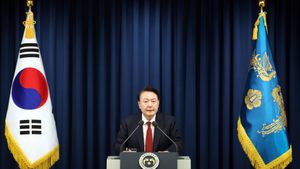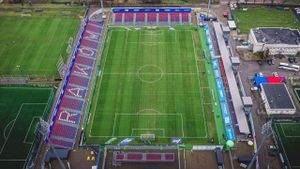Beirut, Lebanon - The political crisis engulfing Lebanon has reached alarming depths as mistrust and divisions among the country’s factions grow wider. With each passing month, the Lebanese public feels the strain of political stagnation and growing discontent. Recent protests mirror the frustrations of many who are tired of promises unfulfilled and political games being played at their expense.
According to Al Jazeera, local activist Samira Bitar lamented, "The people are tired of waiting for change, and they are not seeing the leadership they deserve." This sentiment reflects the distress among citizens who expected their leaders to bridge the divides and tackle the myriad issues plaguing the nation.
Historically, Lebanon has had its fair share of political turmoil, with its government often drawing ire for inefficiency and corruption. The country’s fragile political structure, characterized by sect-based governance, has prolonged the current deadlock, leaving little hope for effective policymaking.
"Political parties once united by their opposition to foreign interference are now divided by internal disputes," stated Ali Hassan from The Independent. This fragmentation has not only complicated the political climate but has also stalled any significant reform or progress, worsening the economic conditions for many Lebanese families.
The economic crisis, which has left the Lebanese pound devaluated and access to basic services dwindling, feeds the underlying tension. Citizens have taken to the streets, decrying the ineffectiveness of their leaders. Reports have surfaced indicating increased public dissatisfaction, especially as living conditions continue to deteriorate under the weight of this unrelenting political stagnation.
Karim Kassem from The New York Times captured the despair felt across the nation when he remarked, "This unmatched corruption and ineffectiveness of the government has driven many to the streets." With the public’s patience wearing thin and safety concerns growing, calls for accountability and reform resonate loudly within the communities.
Despite the potential for collective action, the path forward appears murky, marred by historical grievances and aching mistrust. The situation remains precarious, as disparate factions grapple with not only external pressures but also internal dissent among their own ranks.
The prospect of compromise seems distant as political leaders struggle to align their interests with the needs of the populace. Analysis suggests extensive rifts will only deepen if leaders do not rise to the occasion, advocating for changes rooted in public welfare instead of personal agendas.
Civic engagement remains key to pushing for accountability. Many believe dialogues must shift from party politics to community issues, forcing leaders to take notice of the everyday struggles endured by ordinary Lebanese citizens.
The path to resolution is tangled, yet necessary. Lebanon’s rich, complex history can no longer serve as the excuse for stagnation but must instead be the blueprint for meaningful reform. Engaged leadership is required to confront the challenges head-on, and this is where the collective voices of the Lebanese people must rise in unison.
Only time will reveal whether Lebanon can disentangle itself from this political crisis, but the urgency feels palpable. For so many, the hope is to witness genuine change before the situation escalates beyond recovery. The time for decisive action is right now.



